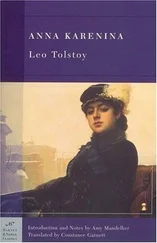“I didn’t know you could skate, and skate so well,” he said to Kitty.
“Your praise is worth having. The tradition is kept up here that you yourself are the best of skaters,” she said. For a moment, then, both were silent, lowering their eyes respectfully as a corpse, wrapped in rough burlap, was loaded onto a carriage.
After a discreet pause, Levin replied simply: “Yes, I once used to skate with passion; I wanted to reach perfection.”
“You do everything with confidence, I think,” she said.
“I have confidence in myself when you are near me,” he said, but was at once panic-stricken at what he had said, and blushed. And indeed, no sooner had he uttered these words, when all at once, like the sun going behind a cloud, her face lost all its friendliness, and Levin detected the familiar change in her expression that denoted the working of thought; a crease showed on her smooth brow.
“Is there anything troubling you? Which is to say, besides…” He indicated with a meaningful gesture the sad scene lying on the skate-maze before them. “Though I’ve no right to ask such a question,” he added hurriedly.
“No, I have nothing to trouble me, beyond this latest diabolical assault on our beloved Moscow,” she responded coldly. Levin cursed internally; there was no discounting that this horrid event had cast a pall over his intentions, and he could feel Kitty shying away from him. When she looked back at him, her face was no longer stern; her eyes looked at him with the same sincerity and friendliness, but Levin saw that in her friendliness there was a certain note of deliberate composure. And he felt depressed, even as she questioned him about his life.
“Surely you must be dull in the country in the winter, aren’t you?” she said.
“No, I’m not dull, I am very busy,” he said, feeling that she was holding him in check by her composed tone, which he would not have the force to break through. Around them, the injured and dead had been removed, and, as was the common practice, the skate-maze would be reopened as quickly as possible; it only remained for the 77s to conclude their safety-scan of the park. The machine-men, supervised by a gold-uniformed Caretaker, moved swiftly on that mission, overturning benches and lifting up sections of track, their sensors glowing purposefully.
“Are you going to stay in town long?” Kitty questioned him.
“I don’t know,” he answered, not thinking of what he was saying. The thought that if he were restrained by her tone of quiet friendliness he would end by going back again without deciding anything came into his mind, and he resolved to make a struggle against it.
“How is it you don’t know?”
“I don’t know. It depends upon you,” he said, and was immediately horror-stricken at his own words. At that same moment, a tinkling little bell began to ring, signaling that the skate-maze was revivified: the track had been cleaned and polished by the II/Skatemaster/490, and was ready for use. Whether it was that she had heard his words, or that she did not want to hear them, Kitty made a sort of stumble, twice struck out, and hurriedly skated away from Levin.
Levin brought Socrates back from Surcease and immediately began muttering bitter curses to him.
“My God, what have I done! Merciful God! Help me, guide me.”
“Yes,” echoed the Class III, somewhat less than helpfully. “God help you.”
THEY SHOULD BE rounded up,” said Stepan Arkadyich, reaching for another oyster from the large pile that sat on the table between he and Konstantin Dmitrich. “Every last one of them should be rounded up and slaughtered in the streets, like the vile beasts they are.”
Such was the gist of the evening news feed, and such therefore was the firm opinion espoused by Stepan Arkadyich over dinner. Levin, though he had witnessed the violence firsthand, offered a more tempered and analytical response. “You do not think, old friend, that we have had enough bloodshed in our struggle with UnConSciya? You do not think an offer of amnesty, to discuss and perhaps address their grievances, might be the wiser path?”
“Yes, yes! A truce for the moderate elements, certainly, certainly!” Stepan Arkadyich agreed genially. “But these violent lunatics? With their koschei and their godmouths and their emotion bombs? Let them be rounded up and subjected to the harshest possible punishment, in the most public of ways.”
The conversation continued in this vein for another five or ten minutes before trailing away. Oblonsky held no real opinions on the subject, beyond what he had received from the evening’s feed, and Levin was too distracted by the undertaking that had brought him to Moscow to let his mind be consumed, as often it could be, by political questions.
“You don’t care much for oysters, do you?” said Stepan Arkadyich finally, emptying his wine glass. “Or you’re worried about something. Eh?”
He wanted Levin to be in good spirits. But it was not that Levin was not in good spirits; he was ill at ease. With what he had in his soul, he felt sore and uncomfortable in the restaurant, in the midst of private rooms where men were dining with ladies, in all this fuss and bustle; the surroundings of bronzes, looking glasses, gas, and II/Server/888s-all of it was offensive to him.
He glanced anxiously toward Socrates, looking to have his own emotions explained to him. “You are afraid,” the beloved-companion pronounced in a simple and quiet voice. “Afraid of sullying what your soul is brimful of.”
“Oh, I say, are you going tonight to our people, the Shcherbatskys’, I mean?” said Stiva suddenly, alighting unerringly on the very topic causing Levin’s consternation. His eyes sparkled significantly as he pushed away the empty rough shells, and drew the cheese plate toward him with a snappy little wrist-borne force projector.
“Yes, I shall certainly go,” replied Levin slowly and with emotion,
“Oh, what a lucky fellow you are!” broke in Stepan Arkadyich, looking into Levin’s eyes.
“Why?”
“I know a gallant steed by tokens sure,
And by his eyes I know a youth in love,”
declaimed Stepan Arkadyich. “Everything is before you!”
“Why, is it over for you already?”
“No; not over exactly, but the future is yours! You are the master of present and future alike, as surely as if you were a part of the Phoenix Project.”
Oblonsky laughed heartily at his own jest, reaching for a third oyster. For all the technological strides that had been made in Russia in the Age of Groznium, the Phoenix Project-through which, it had been hoped, a machine could be built, using the unique properties of the Miracle Metal, that could tear a hole in the fabric of space-time-was one that had been long since abandoned. Indeed, it was the abandonment of that project, among several others of similar ambition, which had outraged the cell of government scientists who ultimately would form the dreaded UnConSciya. By now the very idea of time travel was so ridiculous as to be a source of ready amusement for Stiva and his fashionable set.
“Hi! Take away!” he called to their II/Server/888, and then turned back to his friend. “Well, why have you come to Moscow, then?”
“You guess?” responded Levin, his eyes like deep wells of light fixed upon Stepan Arkadyich.
“I guess, but I can’t be the first to talk about it. You can see by that whether I guess right or wrong,” said Stiva, gazing at Levin with a subtle smile.
“Well, and what have you to say to me?” said Levin in a quivering voice, feeling that all the muscles of his face were quivering too. “How do you look at the question?”
Читать дальше












